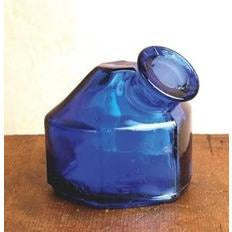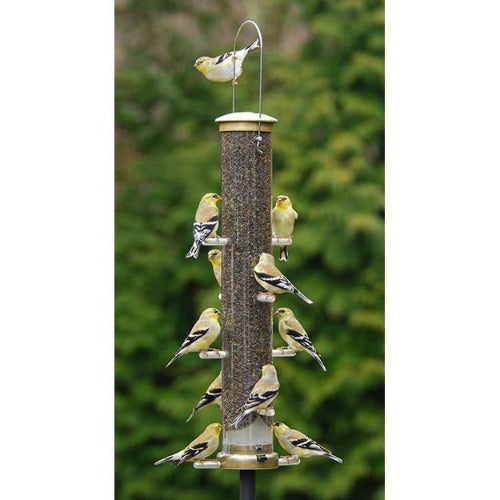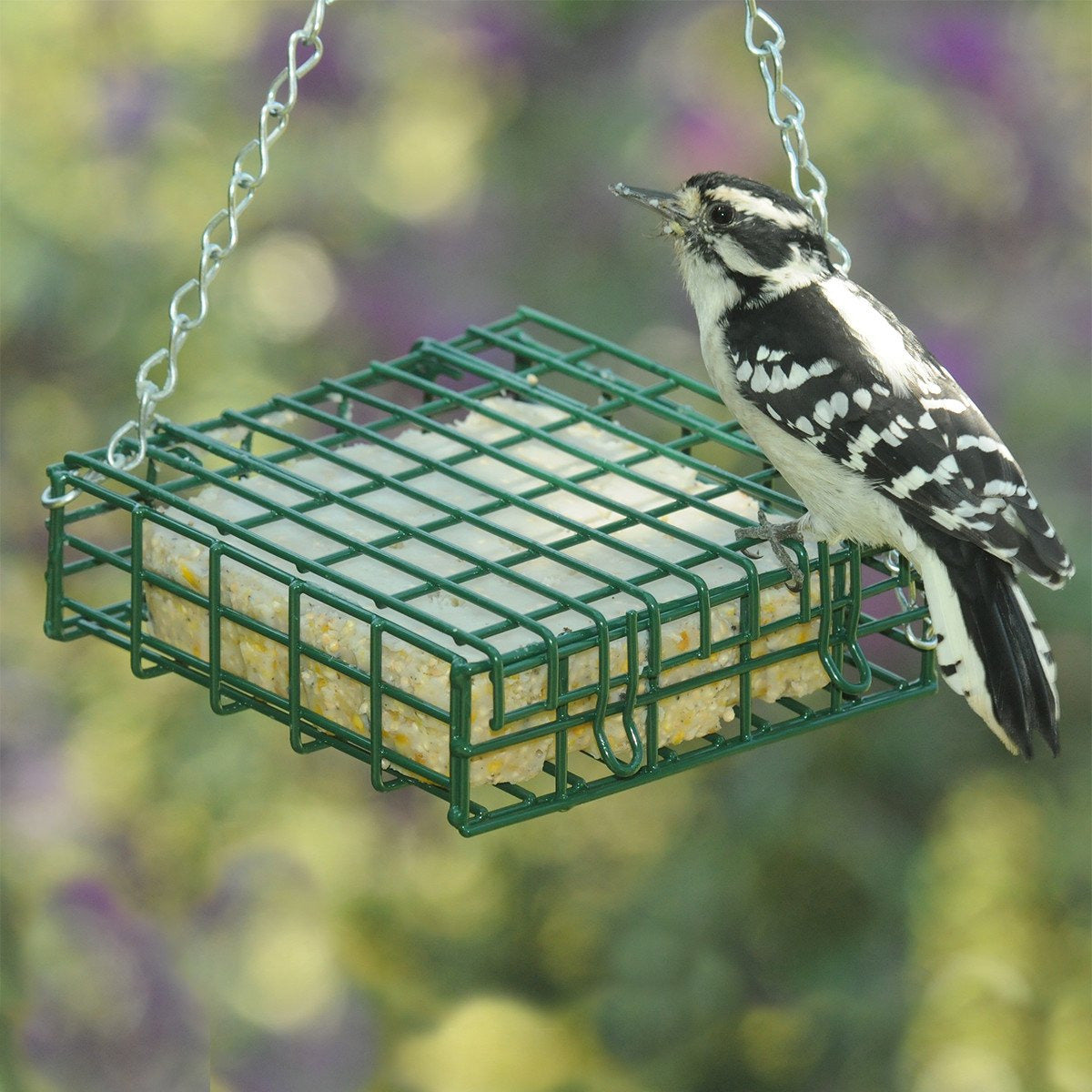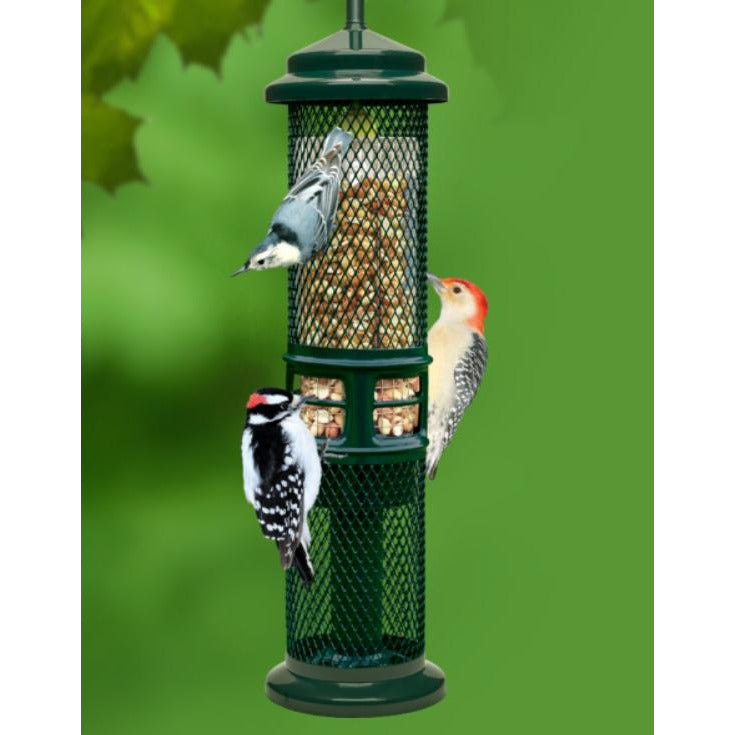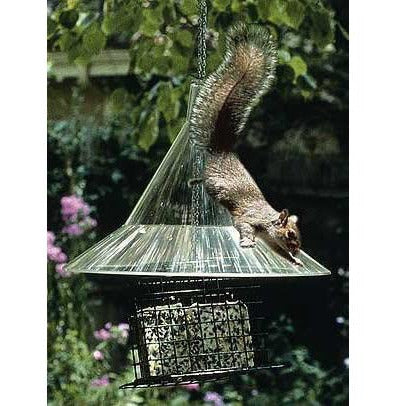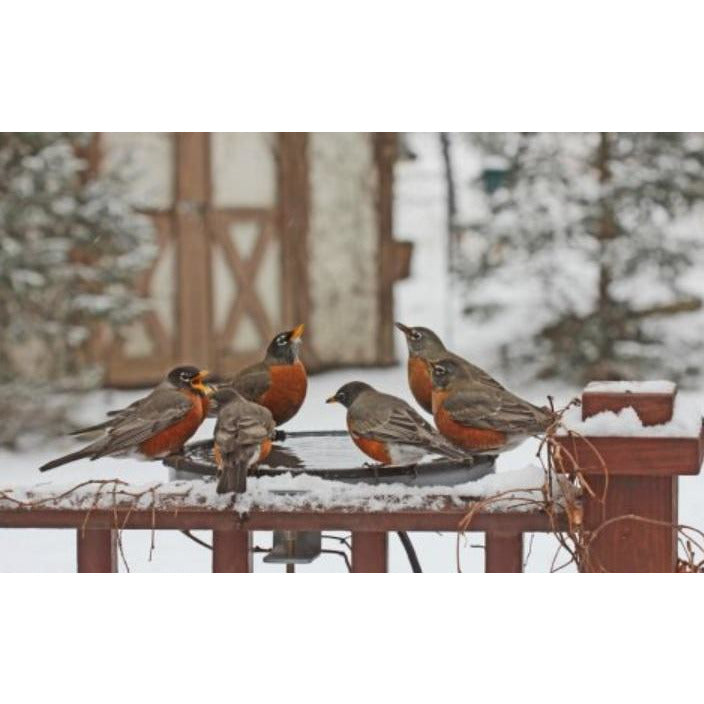Free shipping on orders over $99 in canada (bird seed excluded)
Free shipping on orders over $99 in canada (bird seed excluded)
ACCESSORIES
What do Hummingbirds Eat?
"What do hummingbirds eat?" is a question often asked of hummer enthusiasts. It's a simple question, and you'd think the answer would be simple too. But hummingbirds are an enigma. They are among the most studied families of birds, yet every time we think we know all there is to know about their habits, they do something that flies in the face of that knowledge. What they eat is a case in point.
Seeing hummingbirds flit from flower to flower, early naturalists presumed the birds were getting liquid nourishment in the form of nectar from the blooms, just as bees do. This, they thought, was all the birds ate.
This reasoning, however, had its detractors. Some proposed that the hummingbirds weren't visiting the flowers for nectar–they believed the birds were instead going for the minute insects hidden inside the blooms. Supporting this position were numerous observations of the birds hawking gnats and other small insects from the air.
Added to this was the fact that those aviculturalists that tried keeping hummers in captivity found that the birds did not live long on a diet of only sweets; indeed, those hummingbirds that had access to sources of protein fared well in confinement. The reason they drank sugary fluids at all, according to some, was because confined birds were apt to consume foods they wouldn't naturally eat in the wild.
All of these circumstances led to the theory that the majority of the birds' food consisted of invertebrates. Any nectar ingested, therefore, was merely a consequence of the birds foraging in flowers.
To settle the question of what, exactly, hummingbirds eat, early ornithologists shot a number of them–a perfectly legal activity in those days–in order to examine the contents of their stomachs. Upon dissection, they discovered the remains of such prey as flies, gnats, wasps, aphids, beetles, leafhoppers, and spiders, often completely packing the abdominal cavity. Zoologist and museum director Frederic A. Lucas found that the stomach of one hummingbird "contained remains of not less then 50 individuals, probably more."
What he and other scientists didn't find, however, was nectar. Because of this, small invertebrates appeared to be the answer to what comprises the birds' diet. For these researchers, the case was closed.
There were flaws in this insect-only rationale, however. For one thing, the stomachs of some hummingbirds were empty, even though the birds had been seen foraging not long before their demise. What the ornithologists of the time didn't realize is that nectar and other liquids are digested quickly and thus are nearly impossible to detect in the stomach. This is especially true for hummers because their stomachs have an unusual structure. As hummingbird expert Walter Scheithauer describes it, "the outlet does not lie below as in other birds, but above, directly alongside the entrance to the stomach. The nectar can flow direct to the intestine without passing through the stomach."
Positive proof that sugary fluids–and therefore nectar–are an essential part of a hummingbird's diet came when people started placing containers filled with sweetened water outdoors. Despite access to all the bugs they could eat, the birds still eagerly drink the liquid at hummingbird feeders.
Artificial feeders also proved that hummingbirds weren't limited to eating only invertebrates and nectar, because honey or sugar mixed with water were both used as replacements for nectar. (Today most experts consider plain white table sugar to be the best nectar substitute for the birds, and discourage using honey or other sweeteners in hummingbird solutions.)
Subscribe
Sign up to get the latest on sales, new releases and more …









